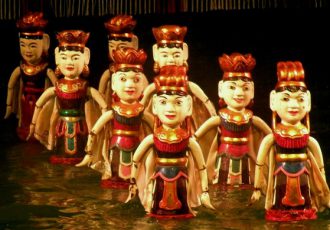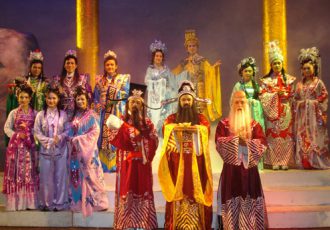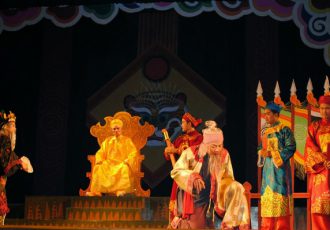The tuong or hát bôi, is a classical court theatre imported from China in the fourteenth century.
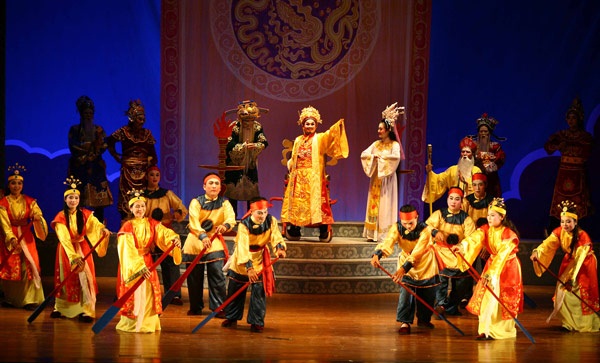
Clearly influenced by Chinese opera, it was introduced to Vietnam in the thirteenth century by the Mongol invaders, until they were repelled by Tran Hung Dao. Very ceremonial, the hat tuong theatre, borrows its gestures and its sets from the Chinese opera. A six-piece orchestra, dominated by the drum, accompanies him.
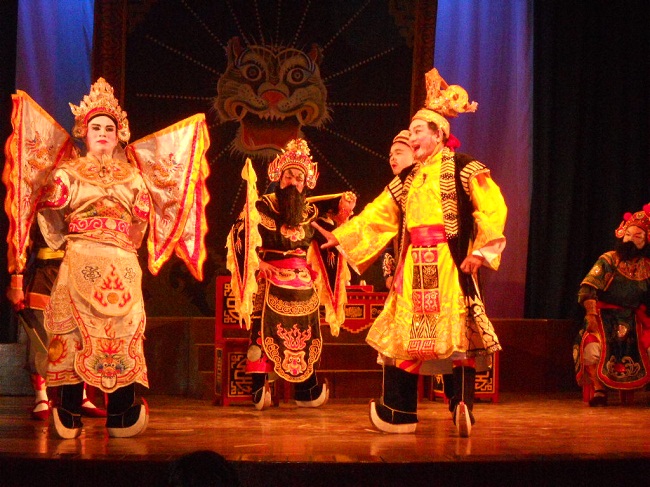
Tuong includes a limited number of characteristic characters, immediately identifiable by their makeup and symbolic costumes. Thus, a face made up in red represents courage, loyalty and fidelity. Traitors and cruel characters whiten their faces. The inhabitants of the plains have the figure painted in green, the mountaineers in black. Horizontal, eyebrows mean honesty; in circumflex accent, cruelty, and falling, cowardice. Depending on how he fiddles with his beard. We can recognize the emotions (reflection, worry, anger, etc.) that animate a male character.
During a tour in Vietnam, participating in a theatre in Tuong leaves you with an unforgettable memory!

